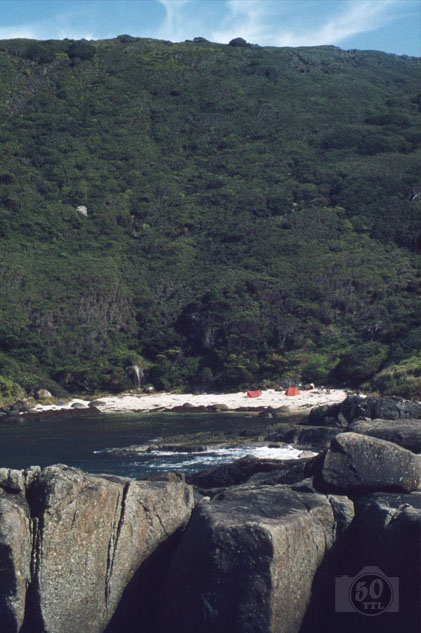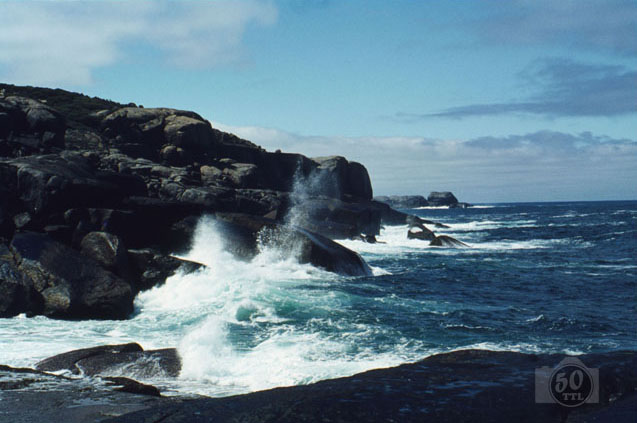
Our taste of bushwalking in 1979 was only the beginning. From here on, the Western Australian bush and the south coast in particular feature in my photos. In December 1980, friends took us into a patch of wilderness on the south coast. I enjoyed walking, fishing and exploring in a wild but fairly benign environment. I remember being surprised to find a trickle of fresh water flowing onto the little beach where we camped and swam. I was more used to the bush in the dry Perth hills. The notion of a beach with its own natural supply of fresh water was wondrous.

Outside our little cove, the Southern Ocean thundered against the steadfast granite. Huge waves and bursts of spray provided relentless motion to enjoy and to try to photograph. In situations like this, you want to take the defining photo when the spray is at its highest or most dramatic, but most of us then could not afford to fire off frame after frame. Instead you had to watch the ocean, pick the incoming swells and see how they behaved. Maybe you could spot a repetition in the size of the swells, or a particular backwash before a big burst. If you saw a pattern that gave a big spray burst, you could wait for the next occurrence and hope to get that one photo, maybe at the cost of just three or four shots. Of course, there was no screen to check if you nailed it; you finished your trek, walked out of the bush, returned home, posted the film away and saw the result a week or two later.
Today, I would not hesitate to use a high-speed burst mode, and fire off four or five shots time after time, trying to capture the perfect moment. Maybe I might spend more time looking through the camera rather than at the scene as I once would have. Some folk get quite critical of people with cameras looking through the lens rather than just taking in the moment.
Photographers should be honest: the camera can be a barrier between you and real life. With a genuine SLR, the situation is stark. If you capture a truly perfect moment with your camera, by definition you have missed seeing it with your eye, because the mirror flips up while the photo is taken. If you catch that moment well, you can look at it over and over again but only as an image, never as real life.
On the other hand, any photographer will tell you that the quest for those perfect moments can make you pay more attention to real life, drawing you to experience more wonder rather than less.